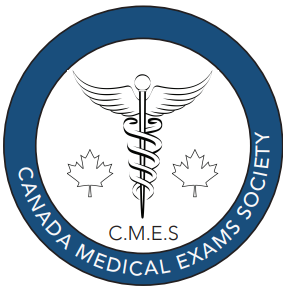Illegal Drugs
In Canada, illegal drugs are contributing to an increasing number of harms. For example, the most common are overdoses from fentanyl and related substances, traffic collisions caused by drug-impaired driving, and gun violence associated with the illegal drug market. Furthermore, The Government of Canada is adopting different measures to decrease the supply and demand of illegal drugs. Thus, the Canadian Drugs and Substances Strategy (CDSS) is to reduce and prevent Canada’s illegal drug consumption.

Read more to learn about illegal drugs in Canada and why they are so dangerous, followed by how the Government of Canada is taking actions to reduce and ultimately stop drug consumption in Canada.
The estimated read time is between 7-9 minutes.
Why Are Illegal Drugs Dangerous
It is not safe for anyone to take illegal drugs because, depending on the drug, they can have adverse or unexpected effects on the mind and body – and some of them can be the cause of accidental or fatal overdose.
what makes a drug illegal
Drugs are illegal if the government has included them in their laws on controlled substances.
Illegal Drugs Can Be Harmful To Anyone
Illegal drugs can damage the brain, heart, and other organs. They can affect our emotions and the way we feel. They may cause people to do things they wouldn’t normally do. For example, while using drugs, a person is less able to do well in school, sports, and other activities. In addition, it is often harder to think clearly and make good decisions for a person who is using drugs.
Depending on the drug, there may be long-term effects of using, including substance use disorder and addiction. Moreover, when people use drugs, they may do risky things that could hurt them or other people. A person of any age can accidentally overdose when using drugs, whether they are someone experimenting for the first time or using street drugs regularly.
Lastly, different drugs have different effects on people. Likewise, people react differently to each drug. How a drug will affect a person can depend on age, body type, or mental state. Just because someone else has tried it and had a certain feeling does not mean it will be the same for everyone.
Fentanyl In Canada
As a medication, fentanyl is a synthetic opiate, a prescription-grade drug used primarily by cancer patients in severe pain in a patch form.

Many illegal drugs bought off the street risk being tainted with fentanyl, between 50 to 100 times stronger than morphine. Heroin, cocaine, oxycodone, and many other drugs on the street can be cut with fentanyl in powder, liquid, or pill form, rendering them even more toxic.
Other Illegal Drugs in Canada
The following are other drugs that are illegal to consume in Canada,
- Cocaine
- Crack Cocaine
- Date Rape Drugs
- Ecstasy
- Illicit Fentanyl
- Heroin
- Ketamine Hydrochloride
- LSD
- Meth (Methamphetamine)
- PCP – Angel Dust
- Psilocybin Mushrooms

Drug-Impaired driving
Drugs, including cannabis, can impair driving abilities and increase the risk of getting into a car accident. Impaired driving is the leading cause of criminal deaths and injuries in Canada. Police-reported data indicate that the proportion of drug-impaired driving incidents has increased from 2% of all impaired driving cases to over 8% in 2020 while, at the same time, the proportion of alcohol-impaired driving incidents was declining. You have options; plan ahead and make a plan to get home.
Drug Stigma Awareness Training Module
The Drug Stigma Awareness Training Module provides tools and references material to support police interactions with people who use substances. It supports more effective policing by helping to reduce the stigma faced by people who use drugs that may prevent them from accessing the health and social services they need.
This Training Module for law enforcement is offered free of charge to Canadian law enforcement personnel until 2022 and for a modest fee after that. Click here to learn more.
Canadian Drugs and Substances Strategy (CDSS)
The Canadian Drugs and Substances Strategy (CDSS) is Canada’s policy on controlled substances. It takes an evidence-based approach led by Health Canada. Moreover, the CDSS is founded on the pillars of harm reduction, prevention, treatment, and enforcement.
Public Safety Canada supports the enforcement pillar of the CDSS and measures to reduce the harms associated with substance use. Legislative changes that came into force in 2017 have increased law enforcement’s ability to take early action against suspected illegal drug production and trafficking operations.
Thank You for reading our Medical Resource on Say No To Illegal Drugs. We hope you found our article informative and important. We have more blogs for you to read, gain information and enjoy.
Feedback and Suggestions for other blog topics are warmly welcome.
